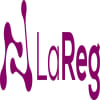Dive Brief:
- Two Missouri utilities have asked state regulators to increase monthly fixed charges for consumers. As Midwest Energy reports, the moves from Kansas City Power & Light and The Empire District Electric Co. follow a trend from utilities across the country.
- Kansas City Power & Light (KCP&L) asked the Missouri Public Service Commission (MPSC) to increase its customers’ monthly fixed charge from $9 to $25. The Empire District Electric Co. wants the MPSC to increase its monthly fixed charge from $12.52 to $18.75 and to increase its per-kilowatt-hour rate by approximately $0.0038, so that a customer using 1,000 kilowatt hours per month would pay the $6.23 fixed charge increase plus some $3.80 for kilowatt-hours.
- The revenues are needed, according to KCP&L spokesperson Courtney Hughley, to cover transmission and distribution system investment and maintenance costs. Empire Electric spokesperson Amy Bass said the balance between fixed and variable costs for electricity is “out of whack” and these proposals will “mitigate the distortion.”
Dive Insight:
Utilities across the Midwest are asking state regulators for such fixed charge increases to make up for current and expected losses of revenue to the use of energy efficiencies, conservation, and distributed generation by their customers.
In a recent case, the Wisconsin Public Service Commission recently approved nearly doubled monthly fixed charges, to the $16 to $19 range, for We Energies, Madison Gas and Electric, and Wisconsin Public Service Corporation.
Now, Missouri utilities are getting in on the game, asking state regulators to hike their fees as well.
This and the Wisconsin cases affirm Attorney Brad Klein’s recent observation to Utility Dive that the fight over how to support renewables and energy efficiency will increasingly take the form of debates about rate design.
Utilities want “to shift the risk of those reduced sales from shareholders to customers,” Klein said. “By increasing fixed charges, they’ve basically insulated shareholders from reduced load growth.”
Because fixed charges will take consumers’ electricity bill control away just when distributed generation and energy efficiencies are providing it, energy expert Nancy LaPlaca recently told Utility Dive she expects to see utility customers more active in resisting such proposals.














